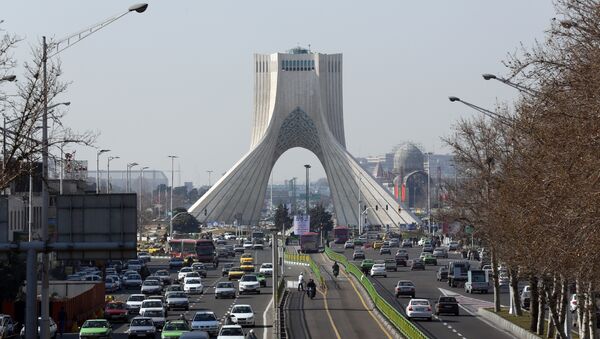"Perhaps this executive order could have been signed under pressure from the 'Zionist lobby' which is extremely powerful in the United States," Hassan Hanizadeh, Iranian political analyst and former chief editor of the Mehr News Agency, suggested, adding that "this document could not contribute to peace, security and calm in the US since it does not reflect the interests of all of its citizens."
Sajjad Tayeri, a political analyst and a columnist at the analytical website IranianPolicy.net, shared these sentiments.
"I think that this executive order looks more like an attempt of some in the US establishment to curry favor with Israel and those countries which truly sponsor terrorists. I mean Saudi Arabia and several other Gulf states," he said.
The executive order did not single out specific countries, but it made a reference to nations covered by section 217(a)(12) of the Immigration and Nationality Act and 8 US Code § 1187, which specifically mention Syria and Iraq.
The document invoked the September 11 attacks to illustrate why Washington needs to review the visa-issuance process, but Sajjad Tayeri maintained that it was not a ground to place Iran on the list.
"The court has ruled that Iran was not linked to the 9/11 terrorist attacks. Saudi nationals were the ones who executed the terrorist acts. At the same time Saudi Arabia has not been mentioned in this executive order while Iran is there although the latter could not be considered a country spreading terrorism since its people have not been involved in terrorist attacks," he asserted.
On Sunday, Iran's Foreign Ministry summoned Swiss Ambassador to Tehran Giulio Haas to express its discontent over the ban since the country does not have direct diplomatic relations with the US. It called Trump's decision "a clear insult to the Islamic world" and "a great gift to extremists and their supporters."
Full statement of the Ministry of Foreign Affairs of the Islamic Republic of Iran on the #MuslimBan. 6/7 pic.twitter.com/Y3gAxT0B8m
— Javad Zarif (@JZarif) 28 января 2017 г.





